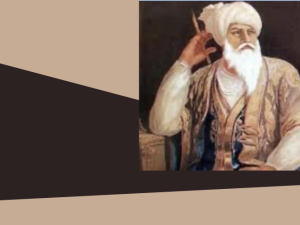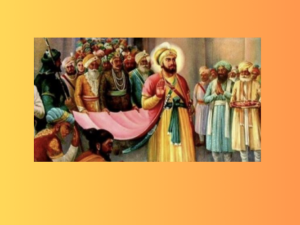"Deg Tegh Fateh," a maxim deeply rooted in Sikh tradition, translates to "victory (fateh) to the kettle (deg) and sword (tegh)." These terms, derived from Persian, encapsulate the principles of charity and defense. The "deg," a large cauldron symbolizing communal welfare and the distribution of food, epitomizes the Sikh commitment to public service and benevolence. This concept has evolved over centuries, becoming integral to the Sikh psyche and spiritual practice, prominently featured in the daily Ardas (prayer).
The "tegh," or sword, transcends its literal meaning to represent the protection of the weak and the chastisement of the oppressor. Historical narratives, such as Guru Hargobind’s dialogue with the Maharashtrian saint Ram Das, underscore the tegh’s role in safeguarding the vulnerable and combating injustice. Guru Gobind Singh’s theological elevation of the sword as a divine entity—addressing it as Bhagauti and Sri Kharag—further deepens its symbolic significance within Sikhism. Together, deg and tegh form a dual ideal that champions both charity and justice, encapsulating a holistic vision of societal harmony.
Chardikala, a pivotal concept in Sikhism, signifies a state of eternal resilience, optimism, and unwavering faith in divine will. This mental state, devoid of negative emotions such as fear or envy, embodies joy, satisfaction, and self-dignity. Rooted in the belief of accepting God's will (Bhana), Chardikala encourages Sikhs to transcend adversities and maintain a buoyant outlook on life. It is not merely a personal attribute but a collective aspiration, urging the Sikh community to face hardships with fortitude and support others in times of need. Chardikala’s philosophical foundation lies in the Sikh understanding of God as nirvair (without enemies) and always merciful. This belief fosters a mindset of acceptance and perseverance, encouraging Sikhs to navigate life's challenges with grace and positivity. The expression "Nanak Naam Chardi Kala, tere bhane sarbat da bhala" encapsulates this ethos, advocating for universal welfare and high spirits even amidst trials.
The recent Lok Sabha election results in Punjab, Haryana, and Western Uttar Pradesh reveal significant discontent with the Central government’s policies, particularly the controversial farm laws. The electoral outcomes, marked by the rejection of the BJP and the success of candidates aligned with Sikh interests, underscore a deep-rooted dissatisfaction among the agricultural and Sikh communities. Incidents like the Chandigarh airport altercation involving CISF constable Kulwinder Kaur and MP-elect Kangana Ranaut further highlight the tensions surrounding these policies. The Sikh community’s historical connection between farmers and soldiers (Kisans and Jawans) amplifies the impact of the farm laws and the Agniveer scheme, perceived as undermining traditional livelihoods and family legacies.
The Central government must heed the electoral mandate and reevaluate its approach towards Punjab and the farming community. Dismissing the entire Sikh community as extremists or Khalistanis is not only reductive but also counterproductive. A nuanced understanding of the community’s grievances and a sincere effort to address them is imperative. Revising the farm laws and engaging in constructive dialogue with Sikh leaders and the agricultural community will be essential in restoring trust and fostering a more inclusive political environment.
In conclusion, the principles of Deg Tegh Fateh and Chardikala provide valuable insights into the Sikh ethos of charity, justice, and resilience. These ideals can inform a more empathetic and effective policy framework that acknowledges the unique socio-cultural dynamics of the Sikh community. By aligning governance with these values, the Central government can better address the aspirations and concerns of one of India’s most vibrant communities.






